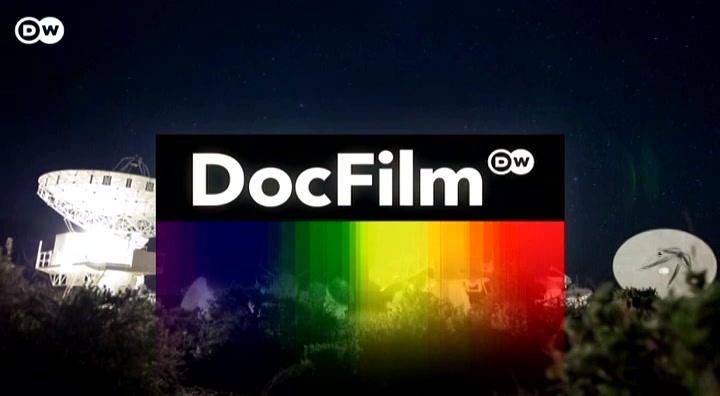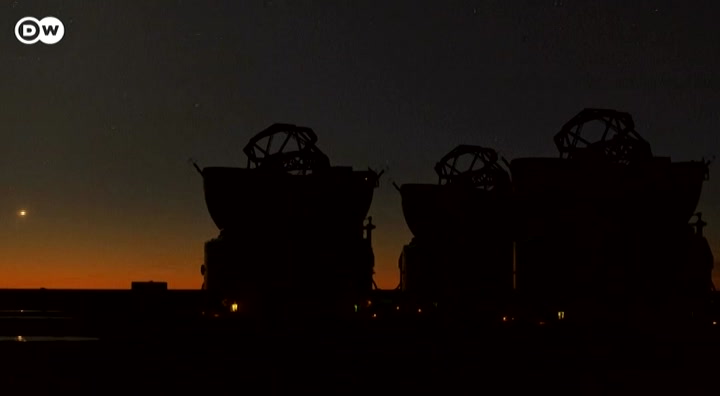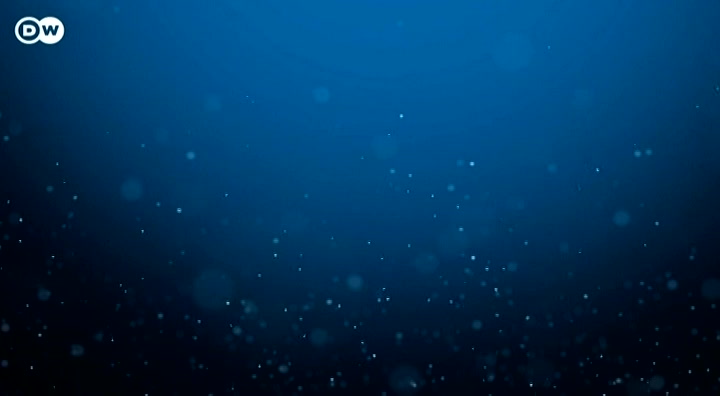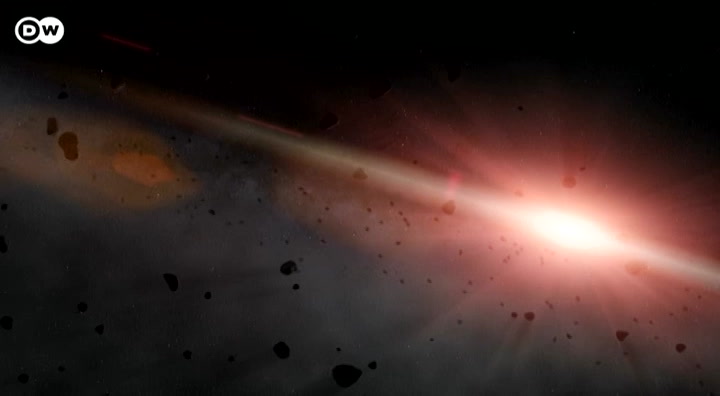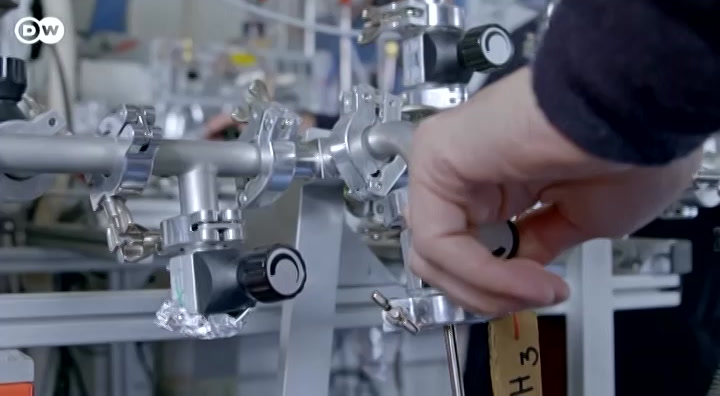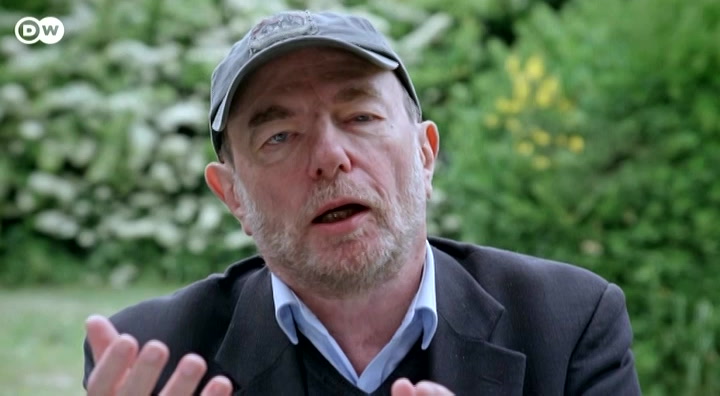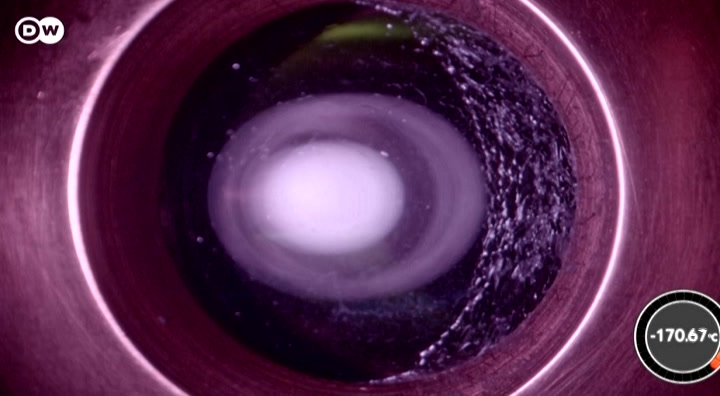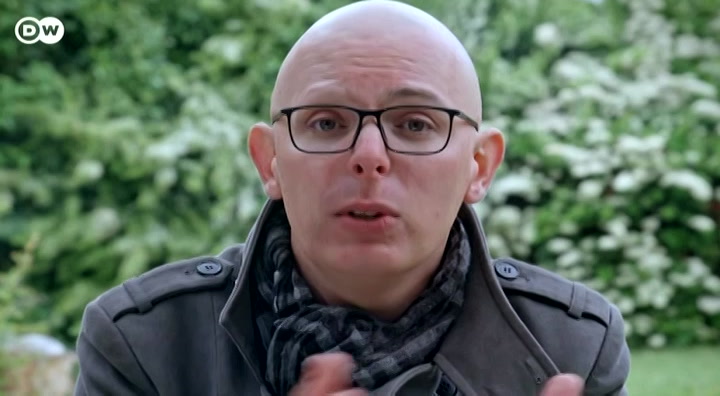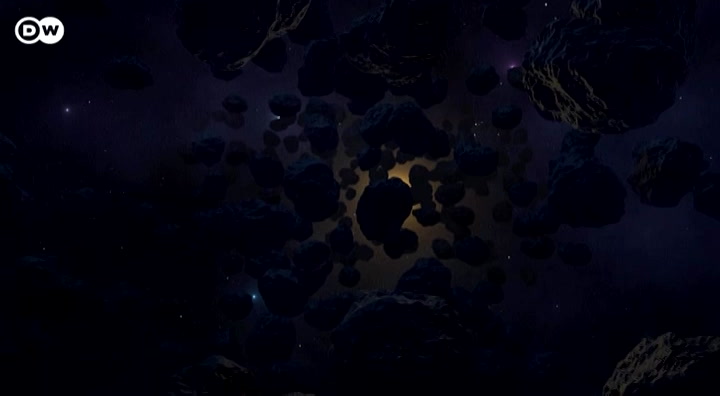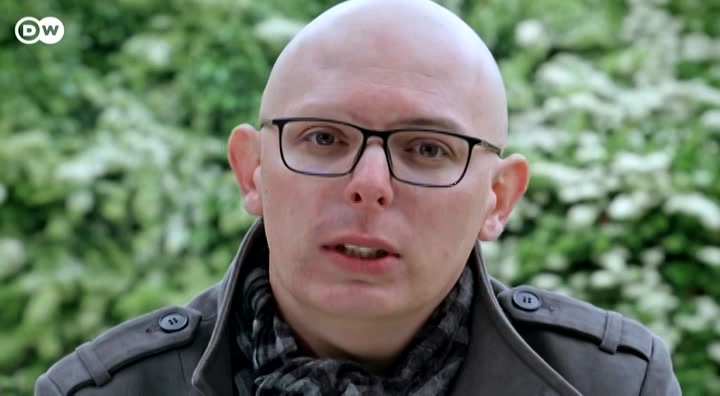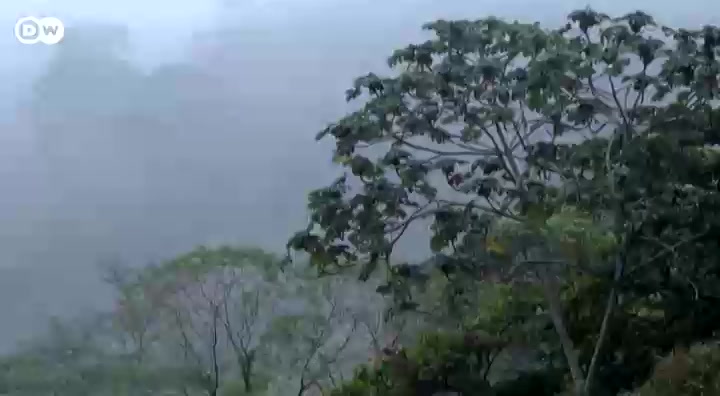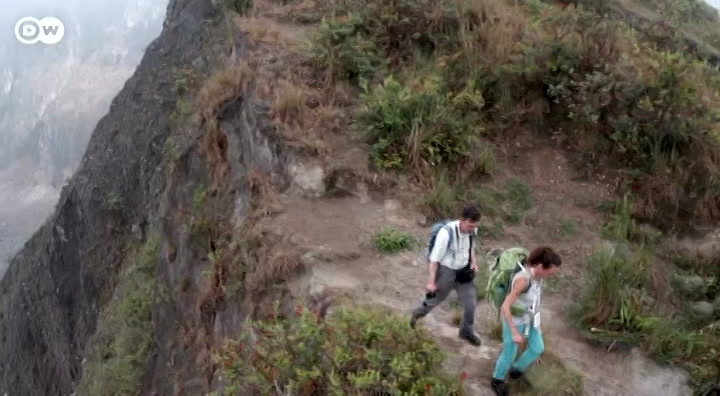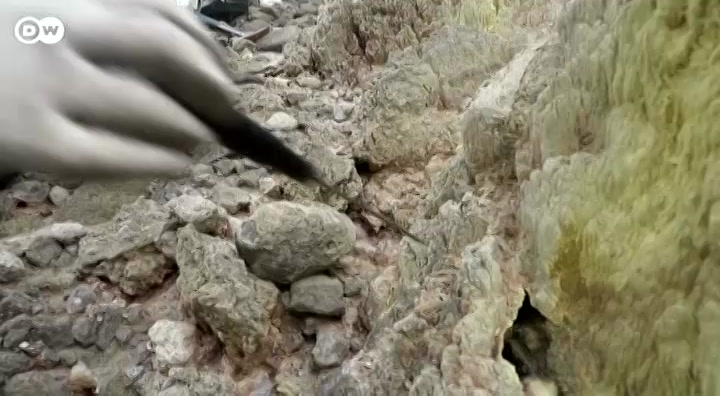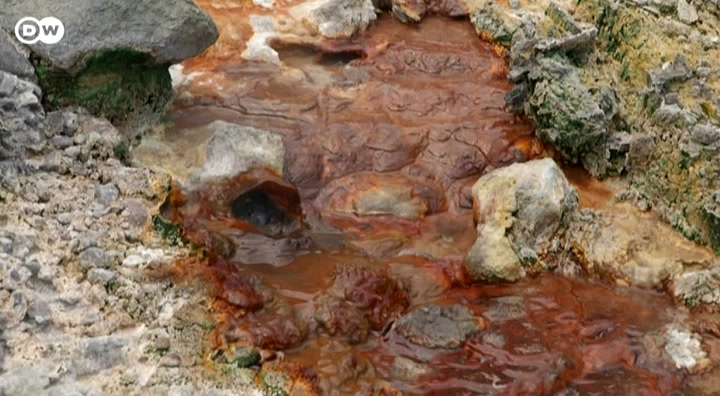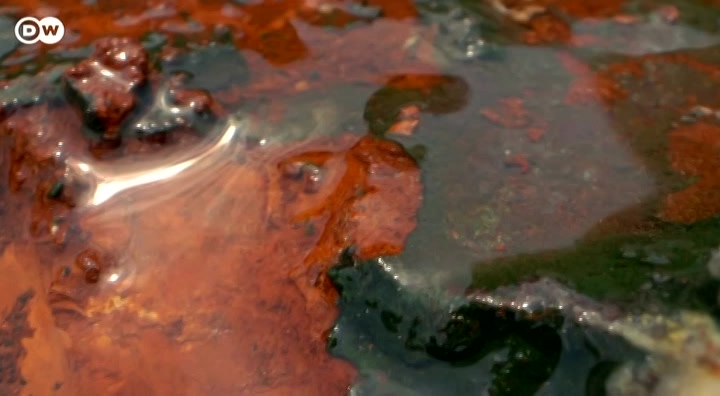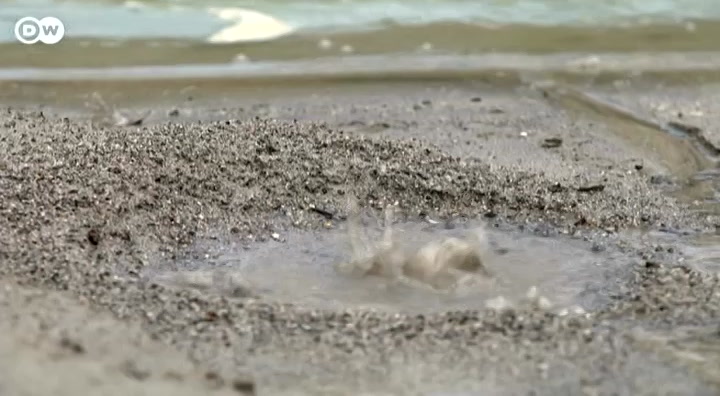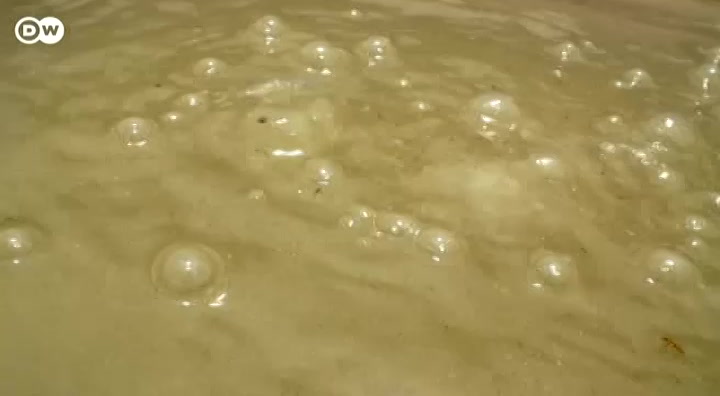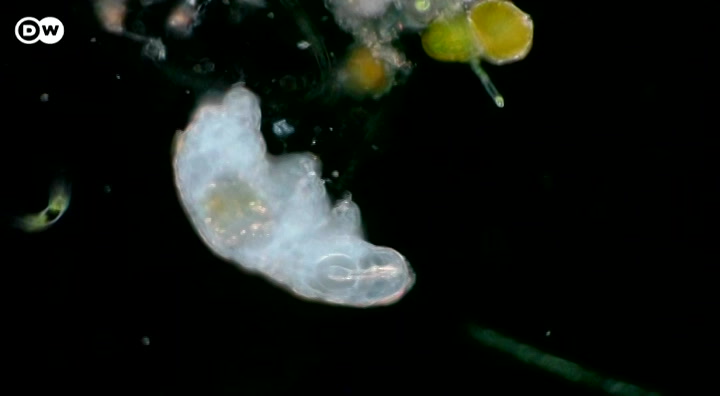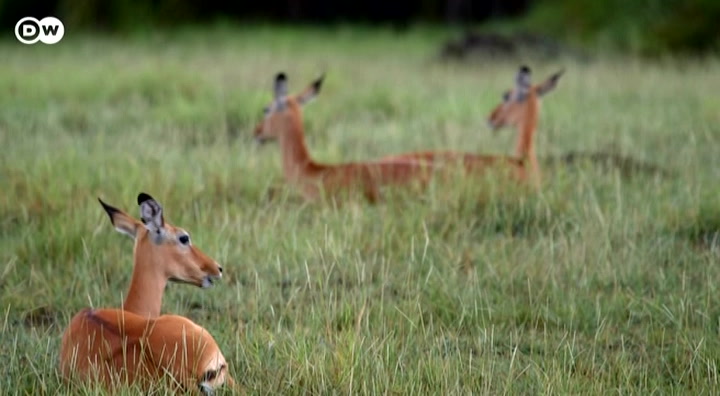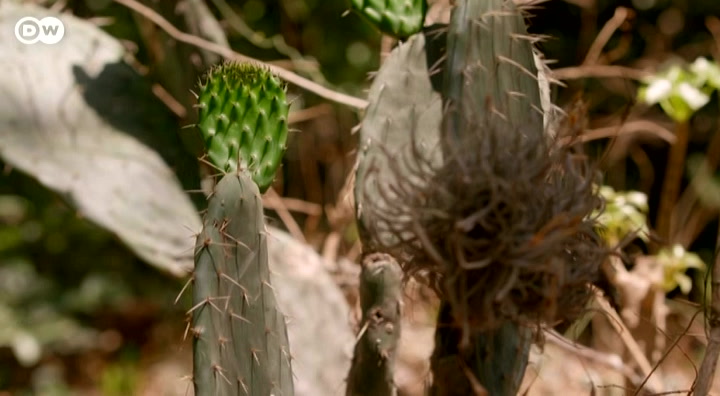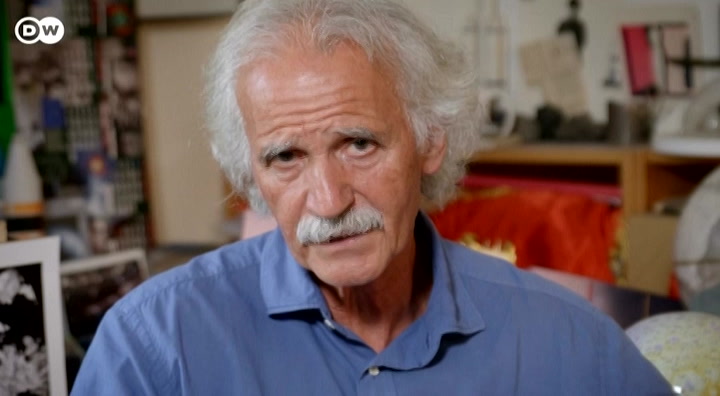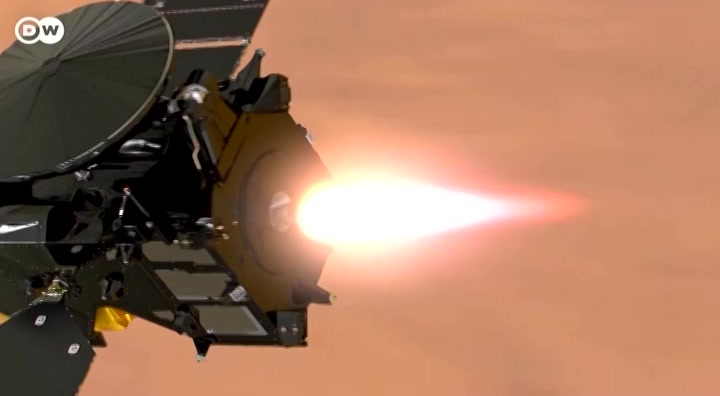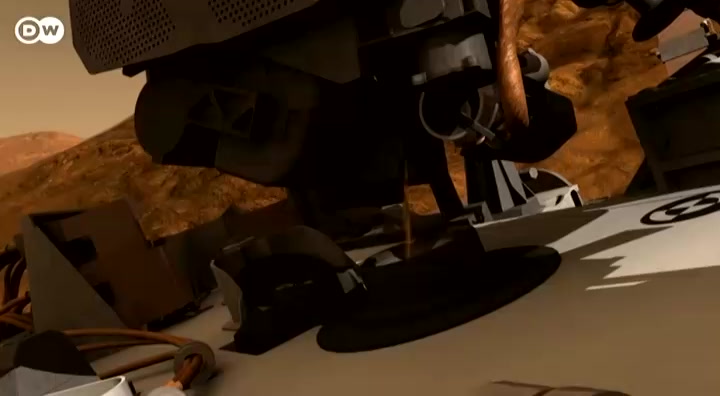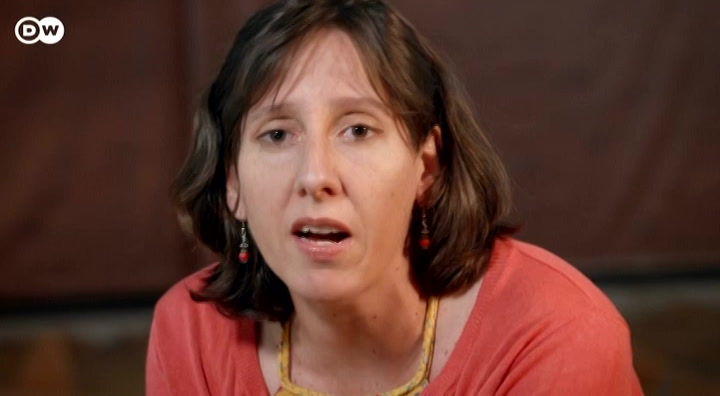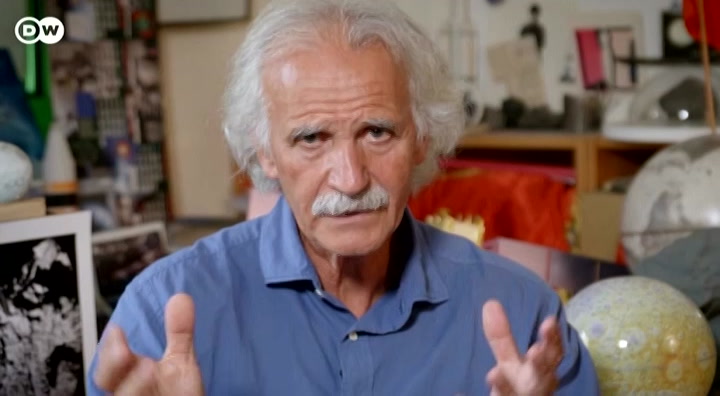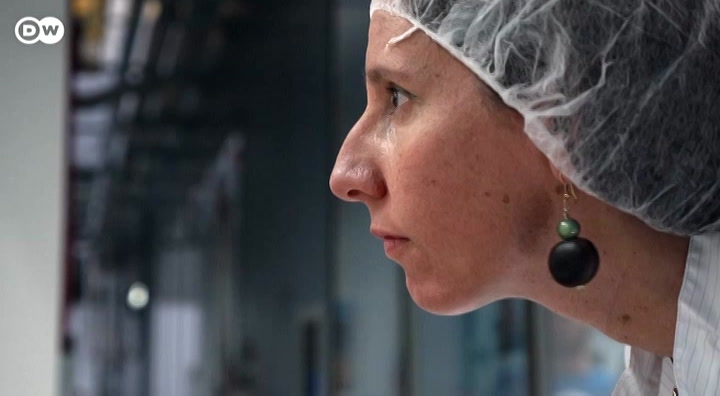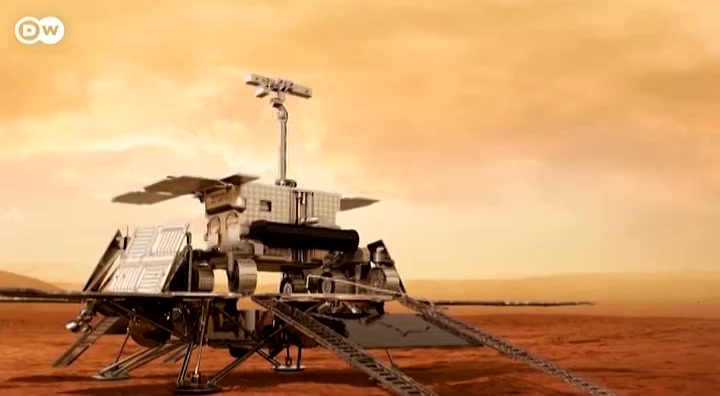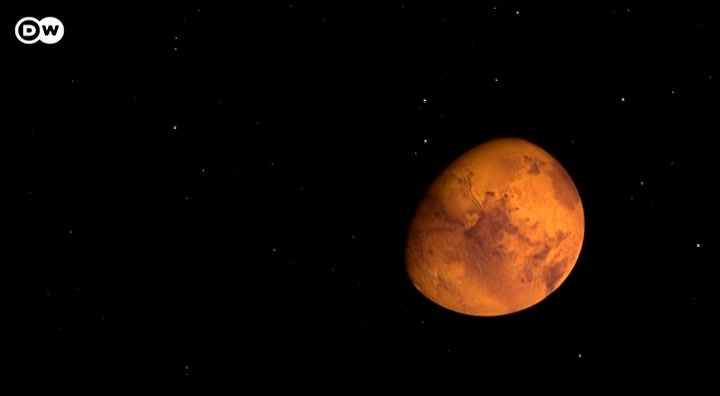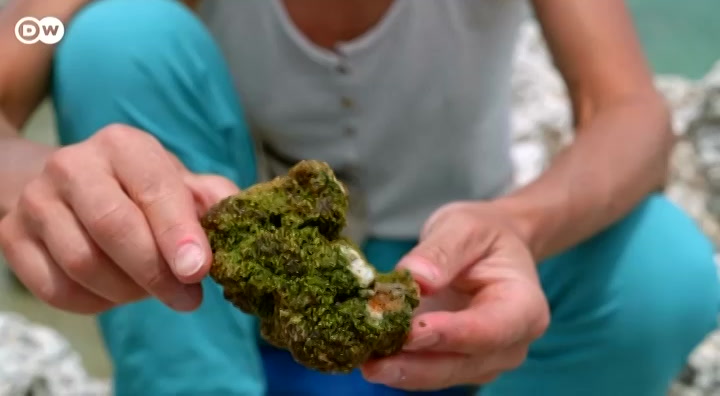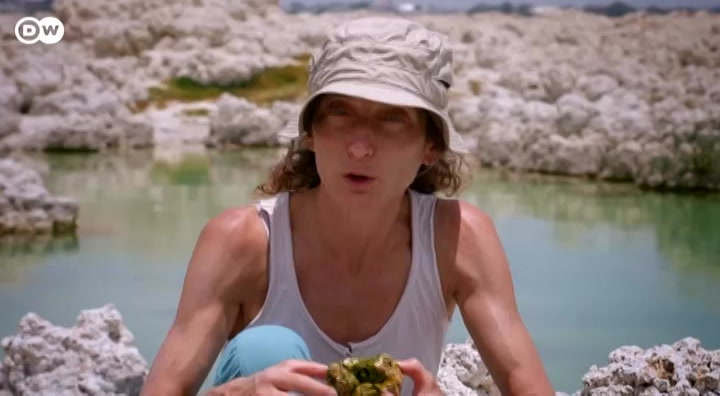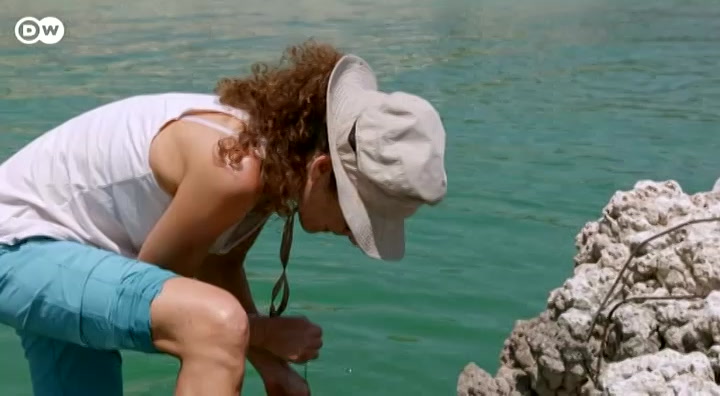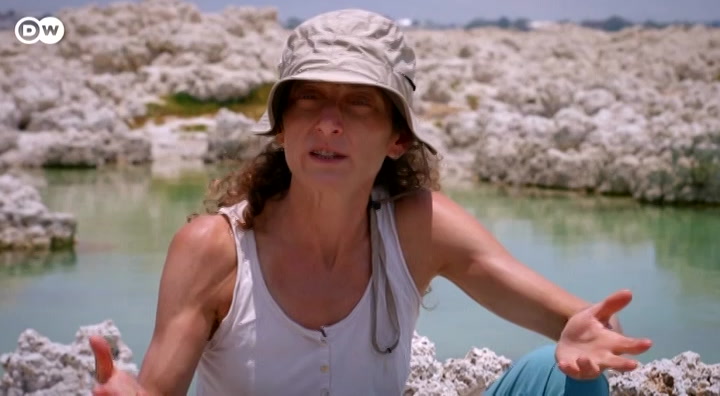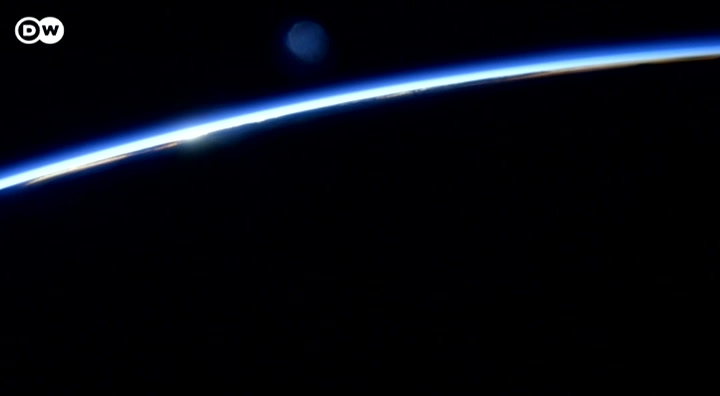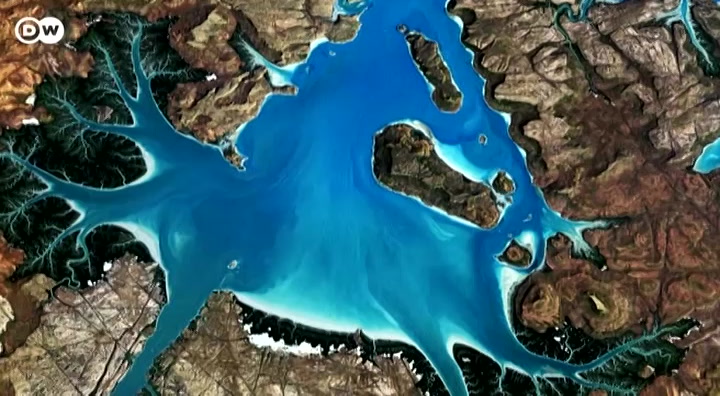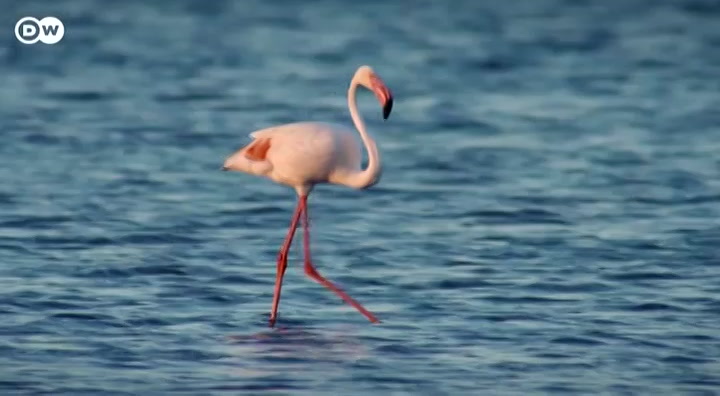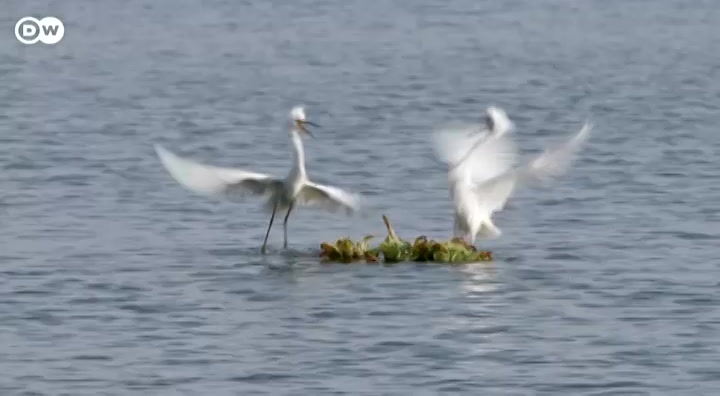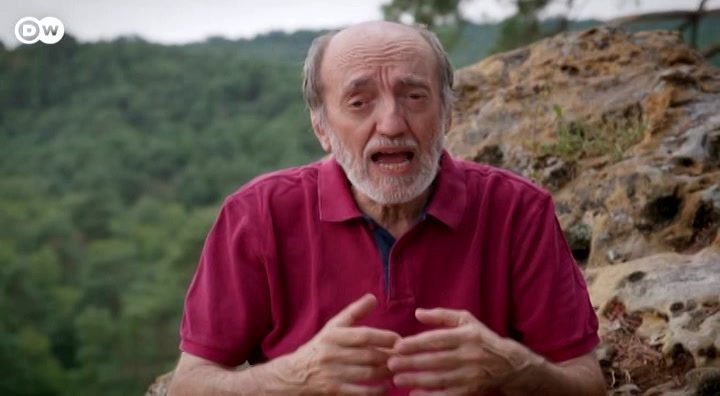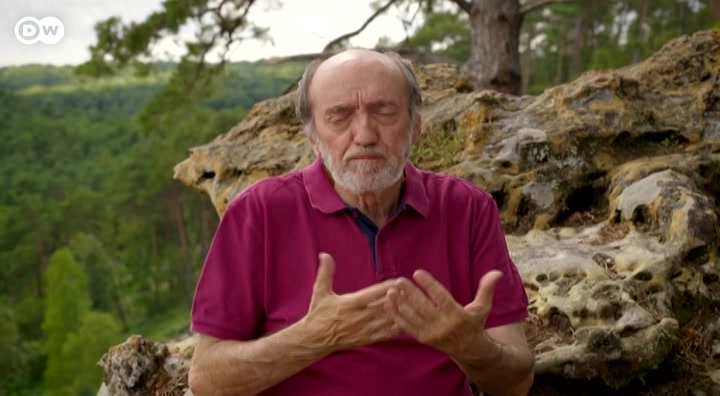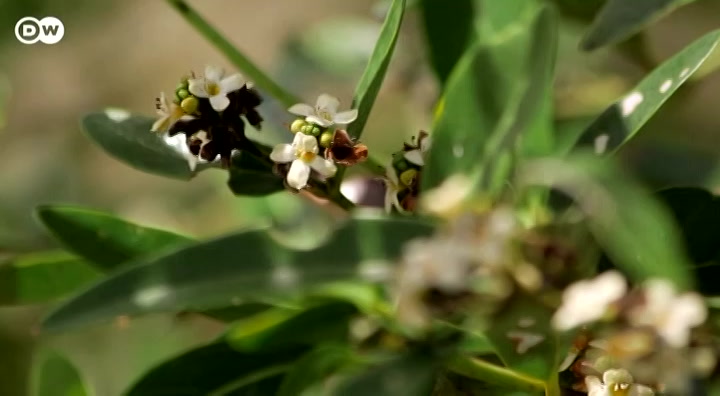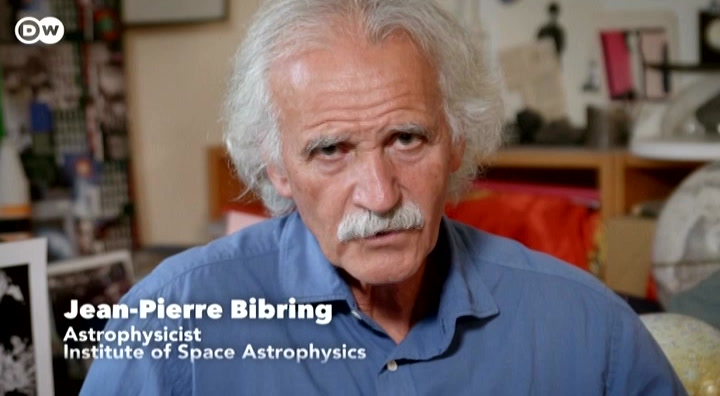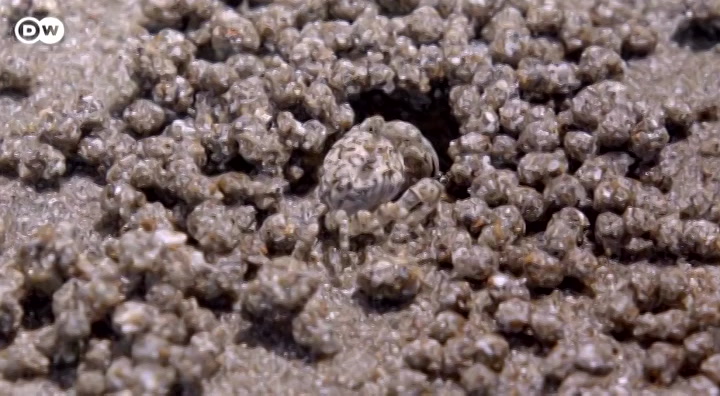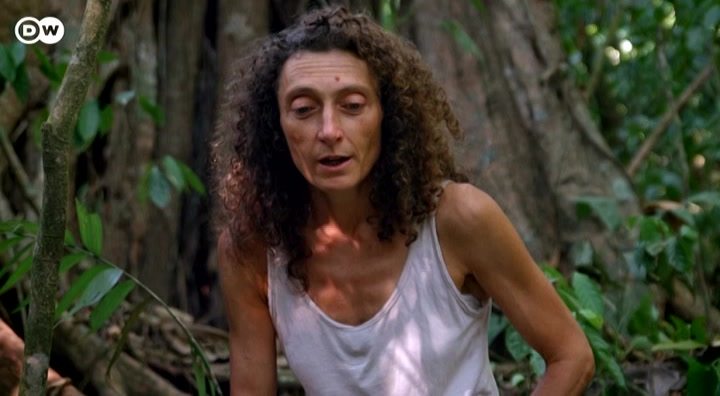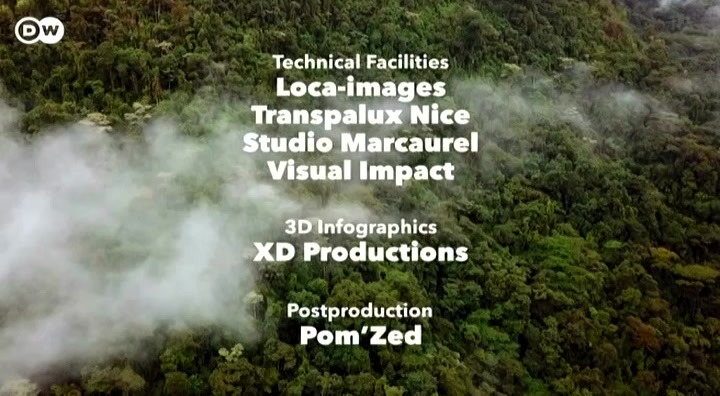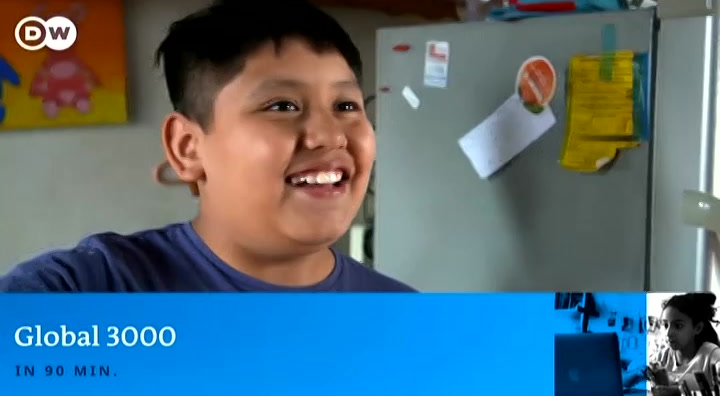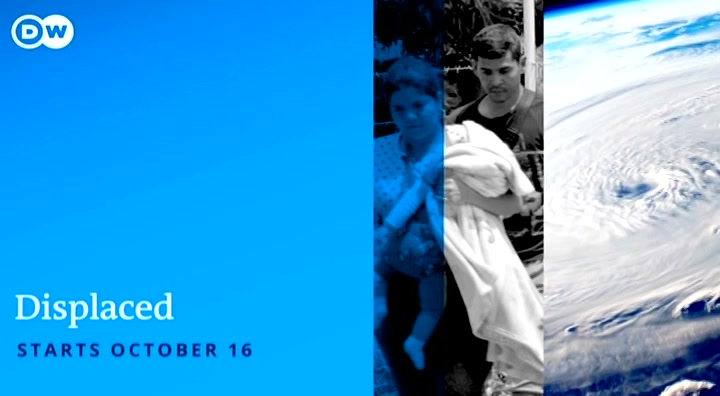tv What if Earth were Unique Deutsche Welle September 28, 2020 11:15am-12:01pm CEST
11:15 am
they're watching v.w. news coming up next got a documentary film for you asking what if planet earth were unique but i think it is stated they say up to date on our website there's d w dot com i'm terry martin thanks for being with us. because. we're all set. to go beyond. going so that. we're all about the stories that matter to you. but. whatever it takes. the running not. good enough it. made for mimes.
11:16 am
if we just take the time to observe it nature provides us with a fascinating spectacle. is the planet of life running crawling offline life a balance everywhere. but for all this beautiful diversity to have proliferated earth has had to provide a favorable environment for around 4000000000 years. played. then with the conditions which enabled the blooming of life on earth and could these conditions be present elsewhere resulting in alternative ecosystems. play. in attempts to answer these questions scientists scour the course.
11:17 am
most for signs of life. they've built giant telescopes with which to probe the universe and listen to the whispering of the stars but space has remained resolutely silent. scientists have sent probes to the very edges of our solar system but always sending back has been images of planets inimical to life. over the last 25 years however astronomers have discovered thousands of incredibly diverse planets in our galaxy alone and. in so many strange worlds with no sign of life not one other planet similar to our own so could it be that earth really is unique.
11:18 am
all living things on earth are made of the same building blocks long carbon based molecules scientists now think that a large proportion of these molecules came from outside planet earth. comets and asteroids could be the missing links of a long chain the chain began with the simpler molecules found in the early cloud gusts and culminated with the building blocks of life from which life on earth 1st sprang the chain leading to life. may let's walk out with a lot on this carbonaceous material that ended up going to earth's oceans that adventure all whole series of changes that particular temperatures particular events a particular star very particular radiation from our own star not kept up to here.
11:19 am
this organic matter was constantly altered on its long journey towards our planet its final composition the product of a singular history which scientists are now attempting to reconstruct. to understand what happened to these comments during their transformation and journey through the solar system louis don't recall and click why don't they have taken an original approach which doesn't require long and costly interplanetary travel more a trip in
11:20 am
a test tube. ok to join the there's the idea of a journey which is quite poetic but it's framed in a very scientific context sure paroles truck if you keep. hearing there lavar trian must say the scientists simulate the formation of a comet and its journey to earth and i'll just go so how do we do this it's comments are made of ice and dust we make some ice so we're going to glass was it always shows 3 molecules likely to be in such eyes water and methanol and ammonia the water 1st yeah tell me when i have a method. really oh ok. these icy material is similar to that of which the newly formed comets were composed next beyond official comets long journey is simulated in fast forward. also we know that a week in the lab represents a 1000000 unit was already. going to do our job to tell me when you switch it on
11:21 am
then i'll do the compressed air in the experiment begins in the chemical reactor there's a vacuum very close to that of interstellar space and the temperature is minus 200 degrees celsius. or not so we made the ice we can see a bit here so we're going to grow from the edge of the window. the ice is bathed in ultraviolet light simulating solar radiation which breaks up the molecules. in this 1st stage produces simple molecules which can then recombine to make more complex molecules if this astonishing experiment is successful. in the class warfare what we're going to do now is it warm the system a little to see what the ice does. because then begins the 2nd part of the experiment the comet leaves the outer region of the solar system and approaches the
11:22 am
warmest zones where earth is. no what if the 2 like last year can see the ice disappearing after a moment you can see bubbles warming themselves so we're approaching a phase where the water is close to leaving the ice but once we lose the water we see a white film on the surface of the human that's new molecules that are form of us of it's not just at the end we have tiny droplets on the surface of the window which are quite visible to the eye and they constitute the organic matter that's been formed from the initial ice it was a radiator and then run your md. 80 how deep you are shellfish. the temperature in the reactor is now around 20 degrees celsius the artificial comet has finished its transformative journey. there are from. here at the end we get thousands of different kinds of molecules if we start with just remark your through the water methanol and ammonia or if we apply energy to
11:23 am
earth and we form thousands of other molecules on. the experiment was a success. in the small chemical reactor there are now simple organic molecules similar to the building blocks from which life sprang forth. among these molecules harbinger of life there are amino acids the base of all proteins found in every living creature. also in these droplets there are sugars essential for the construction of d.n.a. . the sewerage lot of old molecules like there's ended up on earth in fact what we call meteorites are pieces broken away from comets and asteroids that came in our atmosphere and left their extra terrestrial organic material on the surface of primitive earth as that's true for us out there and. having traveled from the outer reaches of our solar system diesel gannett matter
11:24 am
ended its journey in the oceans of primitive earth. now we need to know what the environmental parameters were which allowed this matter to keep reassembling until it formed living organisms. this is the next step of these groundbreaking experiment. feel gammick matter produced by the artificial comet is placed in an environment close to that of primitive earth. which could have been a softball or pushed around with this experimental approach we can change the environmental conditions like we can change for example the water. the pressure of what we can change the wavelength of the imaginary sun that we're using your home going into music is a 600 level going all points very important for determining the various parameters of this or are they limited or not are they unique to earth school look at their other environments they are elsewhere in our solar system or exoplanets for example or things of that dies
11:25 am
a. panic molecules are present throughout the universe but the presence of the basic ingredients of life may not in itself be enough for life to exist. to go from the inert to the living may require a very specific combination of environmental conditions that we're only just starting to piece together. the last. our planet clearly provided the conditions
11:26 am
necessary for life to arise very early on liquid water has been present on earth for 4400000000 years and the most ancient traces of life date from 3800000000 years ago. on a geological time scale life appeared very quickly. what then was this particular medium which allowed the 1st living organisms to appear so quickly biologist put it because your own lopez gussy a here in mexico is studying the amazing adaptability of life in environments very similar to those of primitive earth. while she wound. it's crazy isn't it but if i thought them i could be smaller but it's a pretty big and deep it's going to be hard to get analysis of how to kill him out of place while. certain it smells of sulfur so i love it well shall we go to that oh yes.
11:27 am
horrific house you own and david moreira are exploring the crater of the volcano as children in mexico. fumaroles boiling cauldron us hot mud and springs the geothermal activity is evident everywhere here. gas rising from the bowels of the earth bubbles up through the acid lake. the 2 violet just 1st time is to measure the parameters of the 6 train environment before looking for signs of life. to. see is that hot really hot yes. that's why there were up to 9092 sets still going up 94 sign a 506.7 degrees where it comes out again it must be seriously hot inside
11:28 am
that one must so i don't tell yet. sit down the aisle and see if you ignore the plants at the edge of the craters this is like some environments of primitive earth with lots of volcanic activity and hydrothermal like to protect what is most hydrothermal activity was a constant ancram an ever. so fast. same yes 96.6 so we take a sample we're going to show do you think we are of their cell for. this hydrothermal environment is very similar to that in which life 1st appeared and it doesn't take the 2 biologists long to find organisms which appear to thrive here.
11:29 am
all out of youthful crazy well take a sample here chose would that be the way. it was. despite these conditions which to us see makes strain there's abundant microbial life here the 2 scientists find and observe many varieties of bacteria organized into communities. believe i can use math to add these organisms aren't primitive organisms yet from the microbial diversity we find here and in other ecosystems we can deduce the characteristics of the 1st living organisms. studying environments like these folks can
11:30 am
a crater scientists can easily imagine the types of environments which were favorable to the formation of life on earth. yet there's a lot of hot water vapor or not i don't we can hear the water but we can't see it. on the other show we go to them like look at down over there. 4000000000 years ago the chemistry of life may well have begun in small puddles swept by a backwash book with people. as many hypotheses about the origins of life suggests that there were tides leaving little lakes small ponds which let the organic molecules come together to maybe kick start life so maybe we needed both land and sea but the key for the call to know is will see on. google always go with the big
11:31 am
danger would have been too much water or do with just a little bit more water we'd have had deeper oceans maybe tens of thousands of meters deeper and we'd have had no land just one big ocean planet but no surface no interaction and no possibility of environments favorable to life. we can wonder if the fact that earth had just the right amount of water to have 70 percent oceans continents and then interactions was what made life possible to me that is. the palms of hydrothermal springs provide an ideal environment in which the chemistry of life can get started water heat and chemical elements rising from under the surface to air hockey needs you primitive earth was definitely chemistry and man level a dirty chemistry lab with lots of components all mixed up with a lot of changing of parameters and condition its time at a local take on a show. for several hundreds of millions of years the molecules
11:32 am
mixed together rearranging themselves in all possible combinations becoming ever more complex could this chemistry to finally produce life the chemical elements needed to be able to assemble in isolation from the outside environment. the cell membrane needed inventing. the c.e.o. within this one voice a bubble of greece and ireland things element on that plane that was the 1st individual and if it's going to do that was the 1st population as life began to call morsi. having only just. come into existence the 1st life forms were still fragile their only protection from the outside environment a thin membrane. yet they succeeded in developing their metabolism and specializing life could meld diversify trying out multiple homes.
11:33 am
they love you save us a fly has diversified and honestly but from a single common ancestor maybe early on there were several has a ton of life but only once or i am not a moment of it. we know this because despite the incredible diversity of our living i think animals and plants and the enormous variety and diversity of microorganisms and we all have characteristics that we share that i stick to some only. one of us is just saying biochemical base that the same d.n.a. as genetic material and we are all based on the same cloete man for the same. discus everything that's in bacteria fungus birds whales or plants is the same stuff as us we are all related from bacteria to the most beautiful dresses debated and the committee off.
11:34 am
all inhabitants of earth carry within the law traces of these shared ancient history for we all constructed from a limited number of identical basic ingredients and yet 4000000000 years ago the building blocks were available on primitive earth. wanted in a theory. do co-leader rights came from bodies which broke up the ends of years ago it is near rights there were from 68 amino acids we only use 24 g.'s go vote. yes i mean the 1st lifeforms chose these 20 amino acids for why those so it's probably just a question of chance to do a shot so. it's a great time your mission you can very well imagine a world in which living creatures are made up of 28 amino acids they both but not the same ones as us it wouldn't produce the same lifeforms as hard they would be
11:35 am
very different movie so how can you feel. scientists come up against a serious problem when trying to work out how life 1st came into being. 4000000000 years of plate tectonics have obliterated any trace of the 1st organisms. so they have to look elsewhere on a planet where conditions favorable to life did once exist and where traces of this distant past may still remain. to take any deflection exists there's no plate tectonics on the surface of mars or at least a start very early there which means that at certain sites its entire history has been preserved going back a very long time after 4000000000 years old and. there
11:36 am
was certainly time for life to occur on mars before the planet lost its atmosphere and any record of these beginnings could very well have been preserved under the surface. now so if it is mars had to use a very similar to earth's which liquid water comets raining down organic matter and so on just like on earth and that's all i need he said to them i'm sure special than. any other man's i could you are seeing that with the same ingredients from space they're not even the same beginning as a democrat changes which on earth produced life also you. maybe on mars they were the 1st was dangerous to like making membranes i thought the structures like that this particular city plus. definitely didn't leave studied the planet a lot and we realize that 3 and
11:37 am
a half to 4000000 years ago mars had the conditions that could have supported the beginnings of life. to the edges. and that's where we've found that the curiosity rover which has been on mars for 7 years now and is still investigating it so that a crater it touched down in which is 160 kilometers across get used to be on the lake of fresh water filled with fresh water this water was present for hundreds of millions of years old so it's possible that my wife appeared in that crater if you play about it and also cut to. exploring the former lakes of months these scientists are hoping to answer one of the major questions of astronomy and biology is life a pretty ordinary phenomenon in the universe popping up wherever conditions are favorable or is it really a one off phenomenon that we have practically no hope of finding anywhere else but on the surface so this is the crucial question which the next missions to explore
11:38 am
the red planet's arid surface will attempt to answer even though for the last 40 years the history of the search for life on mars has been one long series of disappointments almost every 2 years we here we found evidence of life but we haven't on mars these are mass. these disappointments began with mariner 4 in 1965 as the probe called close to mass it sent back the 1st photographs of the surface to the consternation of the scientific community. the. photos showed a dry and desert like planet. then it was the viking missions the 1st time scientific probes actually touched down on martian soil we have since 1976 the viking which looked on life with one logical experiments with us looking for life on the surface of mars the results are negative gets if. she was exposed to
11:39 am
the viking experiments we're actually looking for life on mars that would be the same as on earth so i do know that's a total illusion and it didn't work it got nowhere but in either doc it was a huge disappointment as the 1980s doomed not just the general public but scientists 2 were in through to the then dominant idea in both cinema and literature that life the bounded beyond our planet that they did that was the 1st big shock shaking the dominant paradigm of that time which said that there was life everywhere including on mars. the failure of the viking missions cooled for a total rethink of how we should tackle the question of extraterrestrial life bhaskar lhermitte take care if you can just see extends mankind have been convinced for several centuries that there was life all over the universe in the solar system people seriously thought that mars was the most likely to be favorable to life and you know it affected pre-sales issue took several set backs in those experiments
11:40 am
before people realized that this idea that there was life everywhere and run its course of us if you did a funeral for is only recently that space missions and shows that we should have a different approach and our missions all to the planet mars became a show of make up and that mass. the next exploratory missions to mars won't be looking for a life now but rather the trace of life in the past. this is the objective of the ambitions european excellence. mission with its most bottle of our tree. name and we know mars well enough now to look specifically for things that have been preserved in the right context end zones favorable to life.
11:41 am
it's here ensuring that the gigantic 3 d. jigsaw puzzle of the european exo mars is being assembled it's a worthy challenge for the scientific community. from the control center and sure in carolyn frisson it will monitor the analyses of the martian soil carried out by the automatic lavar tree in the rover it's the 1st time a mission will be capable of analyzing samples from beneath the surface of mars. all sick or less just surfaces bombarded by radiation which destroys the material they're looking for organic matter which would be the possible residue of a life or falling to. mars is atmosphere became too feeble to filter the solar radiation that so from full to life.
11:42 am
all close off by drilling down 2 meters we can get a much better preserved environment just clear it is more likely that the molecules we're looking for would be preserved preserve us all the morning show could all the chefs. looking for life on mars is in effect looking for our own national origin as well on earth that we don't know how it went from chemistry to biology it's the missing link exobiology that passage from chemistry to bio and you know shifts. so push on las casas it's on mars through these experiments we find organic matter we can say that we're attracting the 1st stages of how life emerged on earth jeff in a very short good ideas of their.
11:43 am
earth fortunately underwent a very different history from that of months our planet was able to hold on to its atmosphere and liquid water life continue to evolve inventing new forms. and this white rock is testimony to an aa people that occurred 2500000000 years ago in the oceans and development which changed the entire history of life on earth a planet scale revolution brought about by microorganisms. we had lots of beautiful to me this rock is the history of art at the history of
11:44 am
biology it's evolution it's the amazing ability to transform matter and energy and it's fantastic and where the children of this type of microorganism this is our parent and i hate this soft. these aren't just any rocks that biologist put it because you only lopez garcia and her team are here to study. these cow kariya structures the result of what was a brand new process using solar radiation as a source of energy alstrom at a light constructed by complex microbial communities. in particular cyanobacteria. skin until i'm surrounded by fossils from adam lives if this is a piece of living straw man i like i'm just shocked you can see the colonies of green cyanide bacteria that is still a typical color of chlorophyll the pigment essential for photosynthesis family
11:45 am
photos hunting. this crazy novation by cyanobacteria was their ability to manufacture their own food sugars from the 3 most abundant elements on primitive earth water carbon dioxide and sunlight this process and photosynthesis also produces a calc arius deposit which surrounds and protects the cyanobacteria allowing them to form colonies. look out. their lovely piece is growing real and really really fast is no more we have at least at least a 100 micro meters of growth per year maybe even $200.00 to $250.00. lb that's wonderful wow. so much on that if we were happy this morning because we found a colonization system which we placed here 5 years ago yes now colonized by microbial communities which produce these minerals very quickly off the top it's about
11:46 am
a millimeter per year old damage is here much skeer it intent on. 2.4000000000 years ago cyanobacteria benefited from an unexpected asset to help them colonize and dominate earth's ecosystem photosynthesis produced a waste product oxygen which was poisonous to the 1st organisms on earth these sorts of released in great quantities into the atmosphere wreaked havoc on other primitive organisms leaving the field clear for the sly. bacteria. called looks easy and has oxygen was toxic for many other organisms and they impose themselves in certain initiatives michele is on the 1st day of a learn to resist this toxic oxygen and then they colonized this new oxygen field
11:47 am
in the barns and let in the so much to take everywhere from the oceans to lakes rivers to and all sorts of surfaces on land on tuna. the cyanobacteria became the most abundant organisms on earth and their massive presence changed the planet's. the atmosphere now contained or suggest an oxygen also provided life on earth with a new protective barrier. high up in the atmosphere ultraviolet radiation transformed oxygen into ozone and gave earth a vital shield the ozone layer. the earth's surface was now protected from harmful ultraviolet radiation and new forms of life were free to evolve in the open air. where you can imagine that the high court has ruled when you see a picture of earth such as from a space station that you see how incredibly thin the protective atmosphere is here
11:48 am
remember this then film which was made by life itself over time and you realize to what extent all these critical areas were essential not just for earth would you support for the life to which it is already. thanks to the cyanobacteria a fascinating self-perpetuating circle came into being. at 1st hoped foster the evolution of life but then with oxygen it was life changing earth making earth
11:49 am
increasingly welcoming to the evolution of life. our planet started to look different becoming a green planet a planet the color of chlorophyll. i've. york city share now with oxygen his role in releasing energy and i'm a building the release of our lots of energy through chemical reaction and it's more useful for animals and probably lead to the evolution of a multicellular organisms already she left for us multicellular organisms then larger animals could now of all thanks to this new element essential to keeping these increasingly complex biological machines running
11:50 am
. need features requiring a greater energy input like muscles a liver or a brain could now form. a new. evolution shaped our planet and its diversity evolution and life on earth into socio bill. by us remembering i'm stunned by biological diversity as life is constantly evolving producing not just the parrot but all these forms of animals and plants that i see here in this time mary for i seem to have a. vision my uncle joseph and i also realized how hard this world can be seen now it's
11:51 am
beautiful but it's a world cup all of struggles between different types of organisms you don't and you know if you can pump up what and when i can see how darwin came up with his theory of natural selection actually the lesson having come to places like this you should understand where you can see these selection mechanisms working all the time you can use more basic showoff racial. equality coast system is the culmination of a long dialogue between life and the environment a dialogue orchestrated by the rules of evolution. that you could also easily be useful pay when individuals are almost identical in varied circumstances and in the population of these individuals some will have a small particularities and this particularities may give them a competitive advantage for getting food or reproduce. exit and we would all but
11:52 am
you sure it will reproduce faster and gradually supply of those that don't have the particularity. it's the environment that has selected the individuals best adapted to the current circumstances was of course all that it is that. the environment itself was now modified by the biological activity of these individuals. evolution in fact is a constant back and forth between the environment and its inhabitants if anyone then there's no purposeful direction that it's not a straight line it in evolution progressed from bacteria to humiliate and it does go from bacteria to us but also from bacteria to bacteria whishaw city evolution is a sort of fan going in every possible direction. evolution of the strongest what is biologically possible and. on there also move what we're in constant movement and this is what has created something absolutely unique that should be
11:53 am
more honest. this is the rich dynamic that has been driving earth since its origins stimulated by the diversity of its environments and climates life is permanently inventing new solutions from one continent to another species evolved differently coming up with new strategies c.r. last year we relaunched evolution since the origin of life if you know would we get the same result on i probably not that they say history repeats itself but it doesn't really know somethings are repeated but history is always different it's the same what life would buy for if we threw the dice again it's unlikely we get the same animals and plants that we have to get money from the morning. evolution on earth is a coming together of the adaptations of genetics and the environment and environment which is itself the result of a long succession and chance of bents chances. multiply it by chums and see
11:54 am
it's all this chance which is made earth unique. music was used and the ecosystems in which we find ourselves it's no desert sand or sea we won't find them anywhere else i. birthed ecosystem is the result of a random process the probability of evolution producing a similar result on another planet seems very weak and yet for the last 25 years astronomers have discovered countless planets in our galaxy they are now quite certain that around most stars there are planets the actual number of planets in the universe must be beyond our imagination. to put a lot of your monkey on this is the argument brought up to challenge this change of paradigm and yet there are billions of galaxies always billions of planets that's
11:55 am
true but billions of billions is an infinity of them yell that when asked what they are thus and there are billions of people that were all different it's not about there being a billions of galaxies it's that in a probability terms billions of billions it may not be a big enough number for us to find an identical case when you know you don't teach . those 3 customer that who would in any case if we do discover another life it'll be surprising and fundamentally different from life on earth. should not time i wouldn't expect to find a tree on another planet or an ecosystem identical to this tron you see if you life has occurred on other planets based on a similar chemistry i'm not even sure there would be animals some planets and more napalmed. look for soul but this whole don't imagine we could find our environment on another
11:56 am
plan. that it's a complete illusion is could there be a plan and b b my answer is very harsh there is no planet b. and it's criminal to say there is c q there's only one space ship with earth's ecosystems and that's earth ecosystem there will be no other. they don't know about . her for around 4000000000 years earth has been home to life of increasing diversity constantly inventing new strategies to survive cataclysms or changes in the environment. life always seems to be on the front foot as though determined to survive in one form or another. and yet today it seems that this beautiful machine ecosystem could well be stalling as a result of the depredations done to it by now own species. of hypocrisy to sydney and we are part of the same biodiversity this ecosystem that if we destroy it back
11:57 am
then that's all part of this ecology in a deep way and will probably go extinct by not we won't be the last time we'll go a long time before the bacteria i think we're just a leaf at the end of a branch which billions of years all the same as all the bacteria all the trees all the plants and all the microorganisms on the planet of the me so we're just one more part of just biodiversity nic and nothing more than that get even to. panic.
11:58 am
11:59 am
a person is forced to flee their home nearly 71000000 people have been forcibly displaced the consequences of the disastrous our documentary series displaced depicts dramatic humanitarian crises from around the world you know. what a good thing we don't get i didn't go to university to kill the pain so i don't fully or to have my boss come to me and tell me to kill someone and he got mad and if i don't they'll kill me. people feel for their lives and their future so they seek refuge abroad but what will become of the horse who stay behind it's a way up until my husband went to peru because of the crisis that obama did that if he hadn't gone there we would have died of hunger that madonna down. to split starts october 16th on.
12:00 pm
this is the w. news live from berlin president trump gets out of a claim that he's benefited from years of tax avoidance. good news story the mayor of. new york times says the self-styled billionaire claimed heavy losses across his business empire and so paid hardly any incomes are also coming up india has become the 2nd nation to exceed 6000000 cases of covert 90 now it's expected to overtake the united states to lead the world into.
36 Views
Uploaded by TV Archive on

 Live Music Archive
Live Music Archive Librivox Free Audio
Librivox Free Audio Metropolitan Museum
Metropolitan Museum Cleveland Museum of Art
Cleveland Museum of Art Internet Arcade
Internet Arcade Console Living Room
Console Living Room Books to Borrow
Books to Borrow Open Library
Open Library TV News
TV News Understanding 9/11
Understanding 9/11
